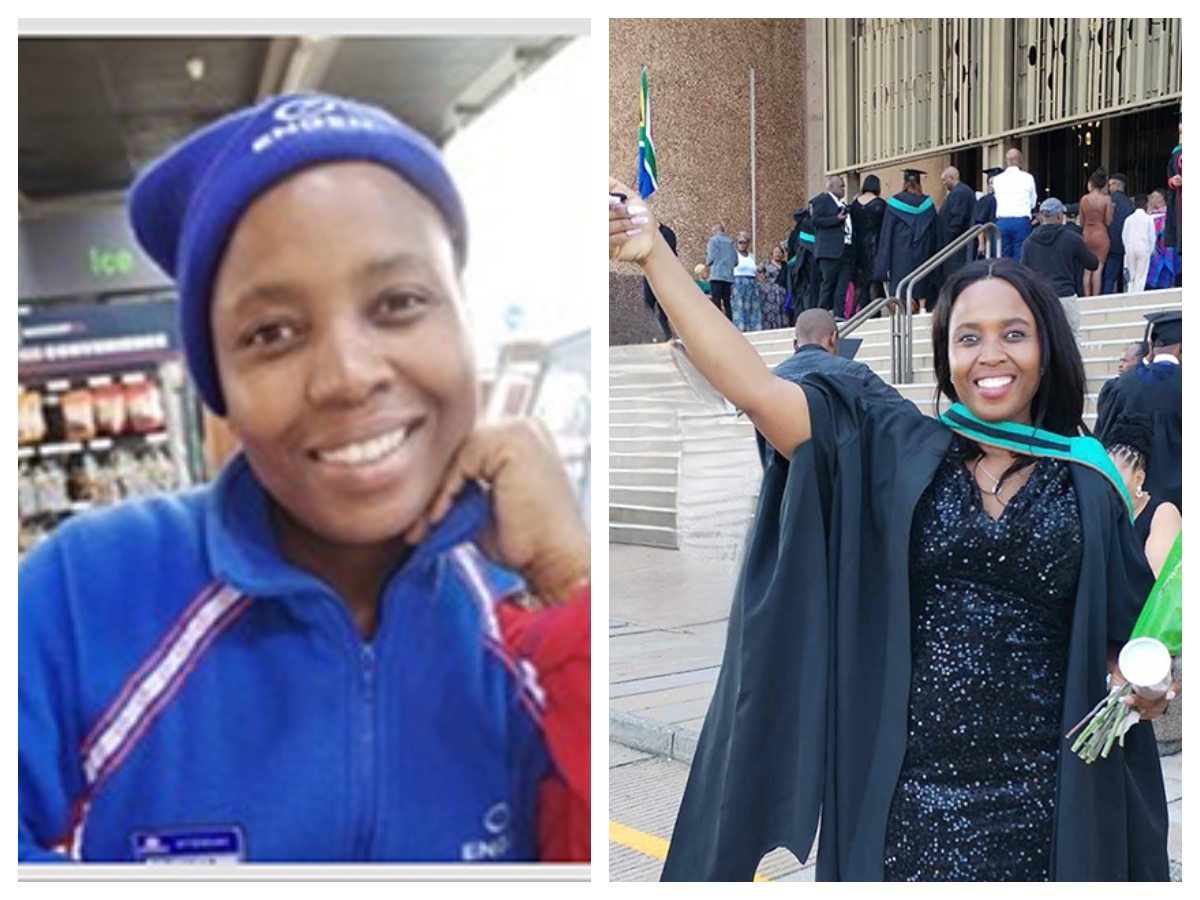Masutane Othilia Sebetha, 38, a wife and mother of three, just earned a Bachelor of Education in Intermediate Phase Teaching at the University of South Africa (Unisa). Standing tall today, she is her family’s primary provider and the first in her generation to graduate.
The South African woman was raised by a single mother who had a difficult time making ends meet. Things got worse when Sebetha became pregnant in 2007 and found it difficult to support the child.
She was regarded as a provider because she was the first child. Sebetha rolled up her sleeves to find work to help her family after her kid’s father stopped providing money for support five months after the baby was born.
She was hired shortly after, first working at a nearby restaurant from 2008 to the start of 2012. Later, she was hired as a fuel attendant at a nearby filling station, where she is still employed now.
Sebetha told Unisa that she felt motivated to pursue higher education five years after being hired as an attendant, but at the time she didn’t have the money or luxury to do so full-time because she was the only provider and had to continue working.
After learning about Unisa, she applied in 2017 to start her Bachelor of Education in Intermediate Phase Teaching program for the 2018 school year. But she was first made to enroll for a higher certificate qualification.
The goal of the Unisa Higher Certificate in Education is to give potential candidates who would not otherwise be able to enroll in a Bachelor of Education program access. Ever the resourceful person, Sebetha applied for her degree the next year after passing the higher certificate.
She believes that having the chance to study gave her the ability to bridge generational barriers. “I wanted access to higher education to change my circumstances. Today, I am the first to graduate in my maternal side of the family.”
Nevertheless, to achieve this, the pacesetter had to balance her full-time job with her academic work, which occasionally required practical sessions. She also had to make sacrifices and miss work given that she was not allowed to take a study leave because her studies would not directly enhance her current job.
She was almost fired due to exhaustion and the demands of her studies at one time.
Enduring night hours, schoolwork, and the responsibilities of mothering three children nearly drove Sebetha to give up, but she declared, “Giving up was not an option I was willing to take. I was determined to meet demands from all fronts.”
In the same spirit, she advised other students, “Defying the odds is never easy, but with determination, you can overcome any challenge.”










